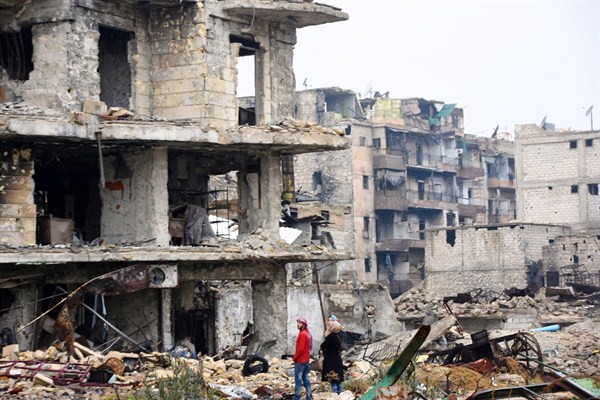The United Nations is kind to losers. The defeated parties in many conflicts, large and small, frequently turn to the U.N. in the last resort to defend what remains of their positions. Palestinian leaders have turned to the General Assembly for decades to argue their case against Israel. In the wake of the Cold War, Russia clung onto its permanent seat in the Security Council as one last bastion of international influence.
Moscow made the best use it could of the U.N. during its years of weakness, and Western powers often threw it a diplomatic bone or two. After bombing Yugoslavia during the 1999 Kosovo crisis without council authorization, the U.S. and its NATO allies agreed to let the U.N. administer Kosovo in its aftermath. This offered the Russians a chance to save face, despite their failure to defend their Serbian ally.
Now the tables are turned over Syria, and the U.S. and its allies may have to turn to the U.N. to offer them a face-saving diplomatic way out after the collapse of Aleppo.

